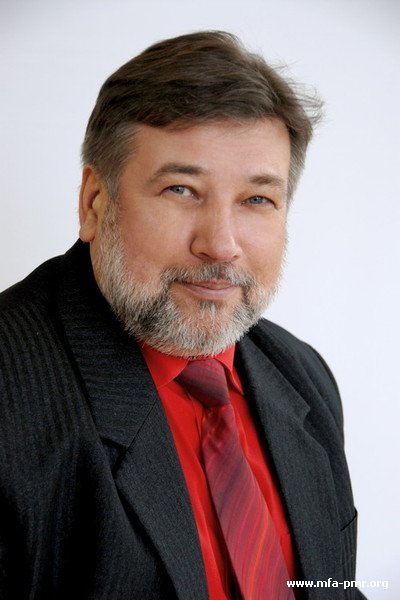The worsening situation in the Security Zone threatened to put into question success of long-standing efforts of international partners of Pridnestrovie aimed at resumption of the work of the Permanent Conference on Political Issues in the Framework of the Pridnestrovien Settlement Negotiation Process. The fact that during the meeting in Odessa convincing arguments of the President of the PMR were heard by the Head of the Moldovan Government deserves high assessment and creates prerequisites for confidence building. Constructive position of the Moldovan side was marked during final press-release, and then confirmed in the course of the joint briefing of the President of the PMR, Moldova's Prime-Minister and head of Ukraine's foreign political office. Statements by the Head of the Moldovan Government are considered in Tiraspol to be an important signal in the context of the process of creating climate of trust between the sides and continuation of a constructive dialogue at international platforms.
Vladimir Korobov: VERY OPPORTUNE MEETING
It is very symbolic and indicative that the first meeting of the newly elected President of the Pridnestrovien Moldavian Republic E. Shevchuk and Prime-Minister of the Republic of Moldova V. Filat took place in Odessa with the participation of the Minister of Foreign Affairs of Ukraine K. Grishchenko. Odessa is one of the most important centers of attraction in the region, an important joint of economic cooperation, and a cultural capital. Odessa embodies important idea of a microeconomic integration in the region, the scope of which considerably exceeds possibilities of the Euroregion “Dniester” being created.
A frosty Odessa prepared participants of the negations for a calm, businesslike, and sober approach to the accumulated problems. Professional correctness and pragmatism of the Ukrainian Minister created perfect conditions for efficient negotiations. In the “denominator” of the meeting – unimplemented possibilities of the Ukrainian diplomacy in the settlement of a regional conflict, in the development of a mutually beneficial multilateral cooperation of Ukraine with Moldova and Pridnestrovie. It is important that nobody had intrigued against anyone, all participants of the Odessa meeting showed their will towards cooperation and mutual understanding.
Undoubtedly, a remarkable meeting in Odessa appeared to be tactic success of a renewed team of the Pridnestrovien diplomats headed by Minister N. Shtanski; moreover, this success causes no damage to the partners; it is shared by all participants of the meeting. Where does this success lie?
Firstly, acquaintance of the two young politicians playing such an important role in the negotiation process in the 5+2 format; strong “emotion of expectation” which psychologists are talking about and which was so important for both leaders was happily resolved and received continuation in mutual acceptance, and this is not bad before negotiations in Dublin.
Secondly, major joint project on resetting Moldova-Pridnestrovie relations was successfully started. It is achievement of a new level of trust between the sides; it is solution of a number of practical problems accumulated in relations of the parties over the past years; it is reconsideration of the negotiation process philosophy.
Thirdly, high level of mutual understanding was reached. The Pridnestrovien side proved inopportunity of raising the question on changing the format of the peacekeeping operation, since consensus in this question has not been reached yet, and V. Filat showed understanding of this position, though, perhaps, it slightly disappointed him, too.
Fourthly, President E. Shevchuk put forward a “theory of small steps”, the core of which is refusal from ideology expressed in words “all or nothing”. The theory of small steps is aimed at achieving weighty, concrete, practical results in negotiations already today, now, without postponing. There are a number of problems, speedy resolution of which will help improve life of people. One of these problems is restoration of a railway communication. This position is directly opposed to the earlier accepted one when 20 years of negotiations has led to nothing concrete.
And finally, fifthly, the Pridnestrovien diplomacy managed, to a certain extent, to draw the Ukrainian factor, Ukrainian resource to the solution of tasks. Despite restrictions connected with international non-recognition, despite inertness which revealed itself to some extent, and even despite some, so to speak, “antics of diplomacy”, participation of the Ukrainian Minister objectively still favors the principle of equality of the sides, positive in negotiations, the level of trust, and real support of the Pridnestrovien diplomacy. The Ukrainian side wouldn't be able to call Odessa meeting a “breakthrough” which was achieved “exclusively due to Ukrainian diplomacy” if there had been no support of Pridnestrovie. It is not needless to stress this interconnection of the sides.
It is necessary to see this success of the Pridnestrovien diplomacy, but not to close eyes to a number of disadvantages and problems. In particular, in my view, work of a renewed MFA requires additional efforts for PR-support. The style of a new team, in particular, consists of not only doing but wisely explaining the sense of its work to its voters and the public of the neighboring regions and countries. Interpretations from the Moldovan and Ukrainian sides are still dominating in the information space. Brave voice of Pridnestrovie explaining the sense of what is taking place is not always heard. And in this case one can say that success of the meeting, success of negotiations can be multiplied by information success after the event itself, or can be belittled or lost at all if one considers that the deal has been done, and let other people blab.
February 3, 2012, Kherson








